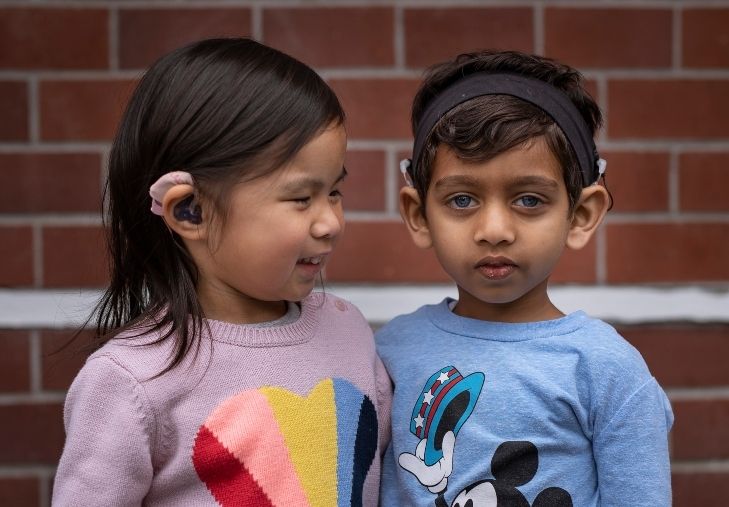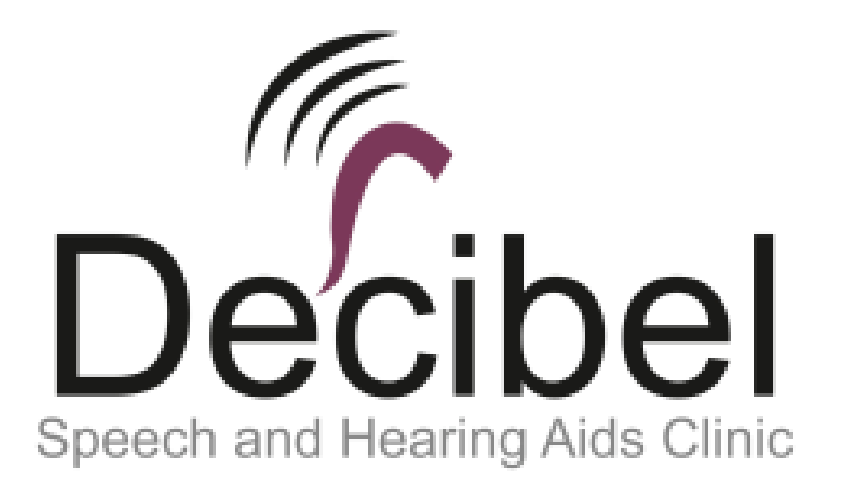At the developmental age, your child might have hearing issues that you are unaware of. They might have difficulty catching words and developing speech. This type of hearing difficulty is called or referred to as ‘Hearing loss In Children’.
The earlier a child gets help with hearing loss, the sooner they can start or regain their hearing ability.
How Do I Know MY Child Has Hearing Loss?
Lack of Response to Sound: Your child may not react to loud noises. They may fail to respond when their name is called or to familiar noises.
Delayed Speech and Language Development: They might have difficulty developing speech and language skills. A child with hearing loss may also have difficulty producing sounds correctly.
Difficulty Understanding Spoken Language: If they are having trouble understanding spoken language, specifically in loud noises or when multiple people are talking.
Frequent Ear Infections: If your child has frequent ear infections, then they might be suffering from temporary hearing loss.
Changes in Behavior: Your child’s change in behavior such as increased frustration, not involvement in social interactions, irritability, or difficulty concentration in school may be the cause of hearing loss.
Turning Up the Volume: If your child constantly turns up the volume on electronic devices, such as the TV or music player, They might have hearing loss at normal levels.
Academic Challenges: Academic challenges like difficulty in writing, reading, and academic performance can be the result of hearing problems your child faces.

Simple Ways To Help A Child Deal With Hearing Loss
When your child is passing through hearing loss whether it’s mild or several they need your support and encouragement. If you are a parent or someone whose closed ones need support, we have some very useful tips and guidance you can use to help your loved ones.
- Speak clearly and face them when talking.
- Use gestures and visual aids to aid communication.
- Encourage them to wear their hearing aids regularly.
- Create a supportive environment at home and school.
- Educate others about their hearing loss.
- Ensure learning materials are accessible.
- Encourage social interaction with peers.
- Seek support from professionals when needed.
Temporary Hearing Loss In Children
Temporary hearing loss is common in children. It is a type of hearing damage that comes after proper ear care. These can be the reason why your child has temporary hearing loss:-
Ear Infections: When kids get ear infections, fluid can build up in their ears, causing temporary hearing loss. Once the infection clears, the hearing goes back to normal.
Ear Wax Buildup: Sometimes, too much earwax can block the ear canal, making it hard to hear. Removing the wax fixes the problem.
Congestion: Allergies, colds, or sinus issues can make the middle ear congested, leading to temporary hearing loss until the congestion goes away.
Eustachian Tube Problems: Issues with the Eustachian tube, which helps equalize pressure in the ear, can cause temporary hearing loss, especially during changes in altitude or with colds.
Fluid After Infections: Even after an ear infection clears, fluid can remain trapped in the middle ear, causing temporary hearing loss until it drains away.
Noise Exposure: Loud noises, like concerts or fireworks, can cause temporary hearing loss, which usually goes away after a while.
Medications: Some medicines can also cause temporary hearing loss as a side effect. Once the medicine is stopped or changed, hearing gets back to normal.
Treating Childhood Hearing Loss
Treatment for childhood hearing loss typically involves a combination of interventions tailored to the individual’s needs. This may include:
Hearing Aids: Hearing devices amplify sounds to make hearing easier for children with hearing loss. They come in various types and styles to suit different degrees of hearing loss in children.
Speech Therapy: Speech therapy focuses on improving communication skills, including speech, language, and auditory processing. It helps children with hearing loss develop spoken language and communication abilities.
Last But Not the least,
Hearing loss in children is common but its early detection should also be common to help the child’s development. If you notice any signs of hearing loss in your child, consult a hearing professional immediately. With proper support and treatment, children with hearing loss can thrive and reach their full hearing potential.

